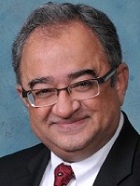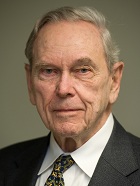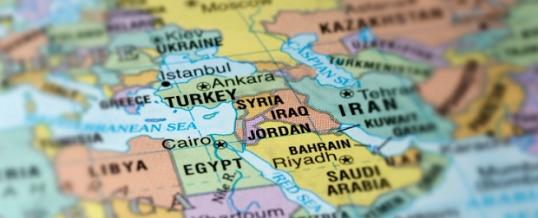|
Dr. Iqbal Hussain commenced the debate by shedding light on the present day turmoil in region of Middle East and North Africa. He elaborated how since the rise of Arab Spring in 2011, the region has been a battlefield of bloody civil wars and military conflicts resulting in millions of innocent lives being lost. He then set out some questions regarding the current turmoil having its roots in the European Colonial era, letting the debaters answer them with their justifications.
 |
Dr. Mark Katz, while defending the motion, firstly argued that one of the main reason behind present day turmoil having its roots in the European Colonial era is “…the borders that they drew.” Elaborating on the same point he further says that the borders were ‘highly arbitrary’, this is because after independence, many major groups such as Kurds, Berbers and various African groups in southern Sudan found themselves to be persecuted minorities in larger countries. Furthermore, Dr. Katz goes on argue how the legacy of European colonialism had a negative impact on the prospects of democratization in the region. He says, “…the European-drawn borders, as well as the ability of minorities which collaborated with colonial rule to retain power after it ended, have posed the most important barriers to the progress of democratization in the Middle East and North Africa.”
 |
On the other hand, going against the motion, Mr. Tarek Fatah denies the claim that actions of European Colonial powers led to the current turmoil in Middle East. He divides up his argument into three parts: ‘The rise of the Islamic State, Daish in Syria & Iraq’, ‘Libya, Somalia, Sudan, Darfur & Western Sahara’ and lastly, ‘Palestine and Israel’. Starting off with the first part, Mr. Fatah compares the Islamic history with contemporary Islamic world and argues that conflict amongst Muslims existed well before the Colonial powers got to the Middle East. Secondly, while highlighting the Darfuris’ massacre in Sudan (2003-2005), he claims that the conflict was amongst Muslims killing each other and there was no Colonial power involved. Lastly, while discussing the Israel-Palestine issue, Mr. Tarek Fatah argues that Muslim leaders were given many opportunities to avoid the long lasting conflict by agreeing on various proposed agreements, particularly, ‘The Faisal-Weizmann Agreement of 1919’, ‘The Peel Commission Plan of 1937’ and ‘The UN General Assembly Partition Plan of 1947’.
 |
Ambassador Richard Murphy while joining the debate as an opening guest, said that it would be an ‘overstatement’ to say that the current turmoil in Middle East & North Africa does only have its roots in the Colonial era. Although, he adds, “Older patterns of conflict are still present. History is a continuum where the stronger, whether in military, economic or ideological terms, has continued to impose its ways on the weaker.” Talking about the ongoing crisis regarding the Islamic State and their declaration of erasing borders, Mr. Richard Murphy considers it to be, “the latest attempt in the Arab World to end what might be termed the Colonial Legacy.” In conclusion of his remarks, Ambassador Murphy also says that the negative impact of Colonial legacy on the present day turmoil might be limited, nonetheless, he believes, “The assertion that colonialism and nationalism represented historical steps towards modernity but prevented democratization through preserving authoritarian rule is more persuasive.”
|

